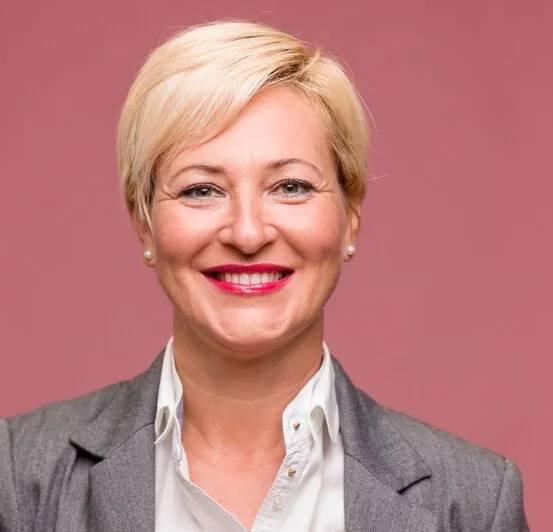Gender Equality and Gender Liberation
Gender equality and gender liberation
Our society has been dominated by the male from centuries. Male has been controlling the actions and activities of females from the very beginning but for the last few decades, it is being changed. Women are rising from the ground and taking higher responsibility as compared to their male counterparts. But it is almost limited because it is being practiced particularly in developed countries. There are several underdeveloped as well as developing countries in which still male dominants female (Daly, 2019). This is one of the biggest barriers in the way of growth and development of the nation. Hence, some of the scholars argued and promoted the concept of gender equality to make women equal to their men counterparts.
The concept of gender equality focuses on uplifting women or raising women to some version of the life of men. Under the concept of gender equality, different needs, behavior, as well as aspiration of both men and women are valued, considered, and favored equally. Gender equality does not focus on making men and women the same but it advocates that the rights, opportunities, as well as responsibilities, will not depend on the gender of an individual. Whether an individual is a male or female must enjoy the same rights, opportunities as well as responsibilities. The main purpose of gender equality is to reduce or mitigate discrimination based on gender. Thus, the main goal of gender equality is to ensure equal rights, responsibilities, and opportunities for both males and females (Falk and Hermle, 2018). It does not focus on transforming the lives of male or female. Thus, on this ground, the concept of gender equality is criticized by some of the scholars.
Gender equality is beneficial for society because it provides females their inalienable rights that benefit humanity as a whole. It is also said that gender equality also helps in fighting or tackling social issues such as illiteracy, crippling poverty, as well as abuse. Women are empowered to take greater responsibility and hence men are not required to prove themselves as the strongest or the best. Men feel relaxed because they do not have to be strong protectors as well as caregivers. After all, women take some responsibility for men. Women have been oppressed for so many years and it is said that oppressing one leads to oppression for all. If women will only be allowed in some specific social roles, men will have to fill the remaining space that women could have filled. On this ground, gender equality is promoted. But it does not focus on transforming the lives of women. It is only helpful in making them equal to men in roles, responsibilities, and opportunities. It will improve the outcomes of the society but for a limited period of time because there will not be reforms in the society but only equal roles and responsibility. Gender equality will not help to improve the outcomes in the long-term (Stoet and Geary, 2018). Therefore, gender equality is considered inaccurate or it has a limited goal. Hence, there is a need for a better approach that can empower women and uplift them along with transforming life. It can be achieved by gender liberation.
The concept of gender liberation goes beyond the concept of gender equality. In order to achieve complete and full gender liberation, the fundamental transformation of society is required. It also advocates for the existence of political, social, as well as economic institutions in order to make the society functioning properly achieve a higher rate of growth and progress. It is argued that in order to achieve full flourishing of humanity it is needed that every individual should have the right as well as the opportunity to determine their sexual identity, gender, as well as expression in order to pursue consensual pleasure (Thompson, 2017). Every individual should have the right to change their body in order to correspond to the self-determined experience of sexual identity and gender. The individual should have the right to decide whether, how, and when to have children or not. This type of freedom needs living without cultural, political, social, as well as economic oppression of their sexual orientation or gender. Gender equality focuses on providing equal rights and responsibility to women as compared to their male counterpart but it is not effective enough to eradicate biases within the society (Gross, 2018). There are no such measures that can help in eradicating gender biases from society and hence gender equality cannot ensure all-round progress of the society. There is a need for freedom like gender liberation so that every individual can enjoy what he/she likes and avoid what he/she dislikes. Gender liberation focuses on creating a free society in which sexuality or gender will no longer be considered as a basis for labor division. It will help to eradicate the inequality of wealth and other social issues.
Gender liberation, unlike gender equality, focuses on freedom of expression rather than being equal to men or women. Gender equality focuses on providing equal rights and responsibilities as well as opportunities for women to be the same as men. It does not focus on transforming the lives of women or men. Gender equality is also not effective in dealing with gender discrimination. Therefore, it is considered inaccurate or having a limited goal. So, it is necessary to bring a change within society by promoting gender liberation because gender liberation allows everyone to live as per their rules and feelings (Singh, 2016). It is completely against gender discrimination and allows everyone to change their body to have consensual pleasure. Therefore, society should go for gender liberation rather than gender equality because gender liberation is the more persuasive goal. It will help in bring all-round progress within the society.
References
Daly, M. (2019). The Long Road to Gender Equality. Social Politics: International Studies in Gender, State & Society, 26(4), 512-518.
Falk, A., & Hermle, J. (2018). Relationship of gender differences in preferences to economic development and gender equality. Science, 362(6412), eaas9899.
Gross, R. M. (2018). Buddhism Beyond Gender: Liberation from Attachment to Identity. Shambhala Publications.
Singh, A. A. (2016). Moving from affirmation to liberation in psychological practice with transgender and gender nonconforming clients. American Psychologist, 71(8), 755.
Stoet, G., & Geary, D. C. (2018). The gender-equality paradox in science, technology, engineering, and mathematics education. Psychological science, 29(4), 581-593.
Thompson, J. (2017). Learning liberation: Women's response to men's education. Routledge.








